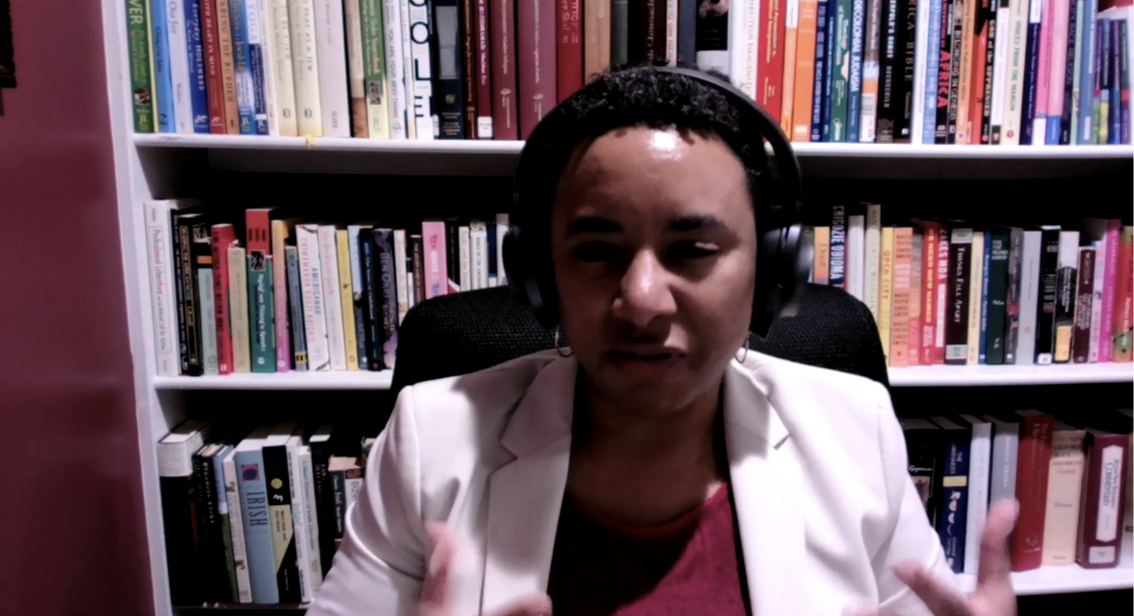Amanda Beckenstein Mbuvi, the Vice President for Academic Affairs at the Reconstructionist Rabbinical College presented this year’s Robbins Collection Lecture in Jewish Law, Thought, and Identity. Her lecture, “Reimagining Diversity and Jewish Belonging: A Journey Through Genesis,” explored how, in the U.S. context, the dominant conception of Jewish identity does not fully reckon with the diversity of Jewish people.
Dr. Mbuvi opened her lecture by sharing stories from both Rabbi Sandra Lawson, a Black Jewish woman, and Jared Jackson, executive director of Jews in ALL Hues, an advocacy organization that supports Jews of Color. “Rabbi Lawson said she has often been asked if she is Jewish while in synagogue even while she is wearing a tallit (prayer shawl). Jackson hears stories every year about Black Jews being questioned by synagogue security personnel about their presence at High Holy Day services,” Mbuvi said. The history of religion in the U.S. is inextricably connected with race, and particularly the legacy of slavery. She described letters from clergy, reflecting a challenge they were facing: they had an impulse to convert slaves to Christianity, but if enslaved people became Christian, they would be brothers and sisters in Christ. “The way they resolved this tension was to say that religion had nothing to do with social identity. This idea that race is unchangeable, and that religion operates on top of race, but does not change race…that is part of thinking through religion in this country, and something that has influenced American Judaism even though it didn’t arise in the Jewish community. It has become part of the way that Americans think about religion,” she said.

“How can Genesis help us move beyond this gap of thinking about race and religion?,” Mbuvi asked. She believes the book of Genesis confounds common sense when it comes to ideas and conceptions of identity, and that it even suggests an idea of Jewish diversity. Mbuvi argued that even by the end of Genesis, there isn’t a fully fledged sense of a united Jewish identity. In Genesis identity is formed through family lineages instead of a unified nation of people, and focuses on migration, instead of the story of a stable, settled community. The diversity of the Jewish people is written into the story of Genesis, with the seventy descendants of Noah “spread[ing] abroad on earth after the flood,” and later in Genesis, with the seventy descendants of Jacob moving to Egypt. “Genealogy gives Genesis its structure,” said Mbuvi. “[It] presents a way of conceptualizing belonging that does not assume uniformity and that acknowledges diversity even within a household.”
A recording of the event can be found here.